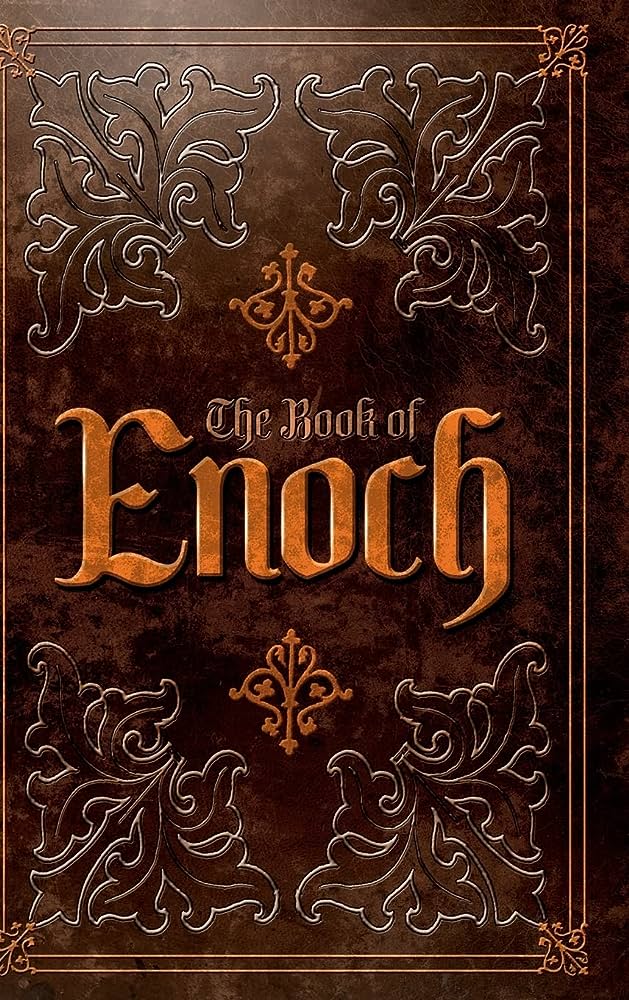The “Book of Enoch” stands as one of the most fascinating and enigmatic texts in religious literature. Traditionally attributed to Enoch, the great-grandfather of Noah, this ancient Hebrew apocalyptic text delves into the spiritual realm, exploring topics like the origins of demons and Nephilim, the fall of certain angels, and prophetic revelations. Despite its significant impact on early Jewish and Christian thought, the Book of Enoch is not widely recognized as canonical scripture in most Jewish or Christian denominations.
Enoch’s Authorship and Background
Enoch, a patriarchal figure in biblical genealogy, is credited with the authorship of this profound text. The Book of Enoch is unique for its elaborate narratives on demons, Nephilim, and the reasons for the Genesis flood, along with prophecies about the Messiah’s reign. Composed around 300-200 BC, with its most recent sections dating to around 100 BC, the book is believed to have been originally written in Aramaic or Hebrew. However, it only survives in its entirety in the Ge’ez language and is part of the biblical canon of the Ethiopian Jewish community and the Ethiopian Orthodox Tewahedo Church.
Multiple Versions and Pieces
The Book of Enoch isn’t a singular text but comprises various writings like “Watchers” and “Dreams” and “Epistle of Enoch.” Each segment offers diverse perspectives on subjects such as angels and cosmic travels, reflecting the rich tapestry of ancient religious thought and mysticism.
Influential Ancient Text
Although excluded from the Jewish and Christian biblical canon, the Book of Enoch was widely read during the Second Temple period. Its teachings and themes significantly influenced early Jewish and Christian beliefs, especially regarding eschatology and angelology.
Enoch’s Celestial Journeys
One of the most captivating aspects of the Book of Enoch is the detailed account of Enoch’s celestial journeys. It provides an in-depth exploration of the heavens, revealing the hierarchy and structure of angels and the cosmos. These narratives have intrigued readers and scholars for centuries with their mystical and apocalyptic undertones.
The Nephilim and the Watchers
The Book introduces the Nephilim, offspring of the “Watchers” – angels who descended to Earth – and human women. These giants are portrayed as beings of immense power and wickedness, offering a more detailed context to the brief account in Genesis.
The Book of Parables
Within the Book of Enoch lies the “Book of Parables,” a compilation of Enoch’s visions and dreams. These narratives are rich in symbolism and offer profound insights into divine judgment and the fate of the righteous and wicked in the afterlife. The parables provide a unique perspective on eschatology and moral conduct.
Apocalyptic Themes
The Book of Enoch is notable for its apocalyptic vision, particularly in the “Book of Parables.” It presents a stark depiction of the final judgment and the establishment of God’s kingdom, contrasting the destinies of the virtuous and the wicked.
Impact on Early Christianity
Despite its exclusion from most Christian biblical canons, the Book of Enoch profoundly influenced early Christian thought, particularly in its eschatological views. Its themes and narratives share parallels with passages in the New Testament.
Rediscovery and Modern Interest
Rediscovered in the 18th century, the Book of Enoch has regained scholarly and reader interest. Its rich thematic content continues to be a subject of study and fascination, offering insights into ancient culture, religion, and the relationship between mysticism and cosmology.
Composition and Historical Context
The Book of Enoch is believed to have been originally composed in either Aramaic or Hebrew, the primary languages for Jewish texts during its time. The older sections, mainly from the Book of the Watchers, are estimated to date back to 300–200 BC. The Book of Enoch was a significant theological work during the Hellenistic and early Roman eras. However, it was eventually excluded from the Jewish and Christian canons and faded into obscurity until its rediscovery. The book contains Aramaic fragments found in the Dead Sea Scrolls, which signifies its widespread recognition and study among early Jewish and Christian communities.
The Book of Enoch remains a significant work in the study of ancient religious texts. Its complex narratives, rich symbolism, and profound impact on early religious thought make it a subject of enduring fascination and scholarly interest. While not universally accepted as canonical, its themes and teachings continue to resonate in modern theological and cultural discourse.
